The first outdoor music festival in 18 months also happened to be my first festival experience. Our odyssey to Limavady and the time we had there is difficult to put into words, it defeats imagination, so I’ll attempt to recount the magical sights and of course sounds that surrounded us. In the middle of nowhere we found a special somewhere rich with strange sights and beautiful strangers. Soon as you’re through the gates the feeling was golden; a smiling aura permeated the air and a thousand hearts beat as one. Expect the word ‘experience’ ad nauseum.
The first big name I caught was Ciaran Lavery, finally getting to hear last year’s “Plz stay bb” live. The buzz blanketed the crowd in blissful existential dread. His songwriting has matured over the years, so refined now is his knack for making the personal past he waltzes us through seem like ours. I was caught in a misty eyed, furrowed-brow trance broken suddenly by the claps. He’s grown more cynical in a charming, sardonic way, “At 31, I still make the same mistakes/As when I was young”. Absurdist cuts like “I Love the Inevitability of Death” can make a large scale festival gig feel like Ciaran and guitarist Danny Ball are playing just for you on a lonely, staring-at-the-ceiling night.

Then, like a siren’s call my ears were drawn towards LYRA. She inherits the same mystical mystery of Kate Bush and Florence Welch. With a voice that rose like smoke and falls like heavy rain and motorik synths she lifts you up to dizzying heights. This vertiginous experience was encapsulated by her stirring, life-affirming rendition of her single “Mother”. It’s clamouring percussion wails with her gracefully gliding round the stage like a benevolent ghost, “I have offered up everything I could/So I will raise my cup and I drink it down with you”
Everything was in full swing, most were well on by this point. The dusty tapestry of my blurred memory starts with Enola Gay dropping a noise bomb of atomic proportions from the Air Stage. I remember shunting forward ‘n’ back to their manic groove and riffs. I never saw the singer’s face; he stomped and headbanged hypnotically at the front of the stage as if it were a messy bedroom, it is only looking at videos that I notice moshing in the audience. I was totally entranced by the squealing fuzz and congealing buzz of bass and guitar, the drums burrowed their way out of a grave and into our ears. Enola Gay were torturous bliss.
We went to see Kíla on the recommendation of my accompanying mate/chaperone. I expected to be entertained, I did not expect to be subjected to an almost holy experience at the Karma Valley Stage. Like Stendhal alumni Lankum, Kíla injects Irish folk tunes with the droning density that post-rockers would maim for. These veterans of world music created their own wee world in the confines of Ballymully Cottage Farm, and leader Rónán Ó Snodaigh et. al treated their citizens to a sprawling sequence of frenzied fiddle, ululating pipes, and some badass bodhrán. I say sequence, but there was barely a moment to breathe and absorb the craic between songs. It was an hour-long barrage of tóg é go bog é (“take it easy”), which sounds paradoxical when you think about it, but it’s not something to be thought, it’s something to undergo. I came away from it purged, reborn even. I’d thought it would be an unfamiliar feeling seeing live music again, but they proved it was like it never left.
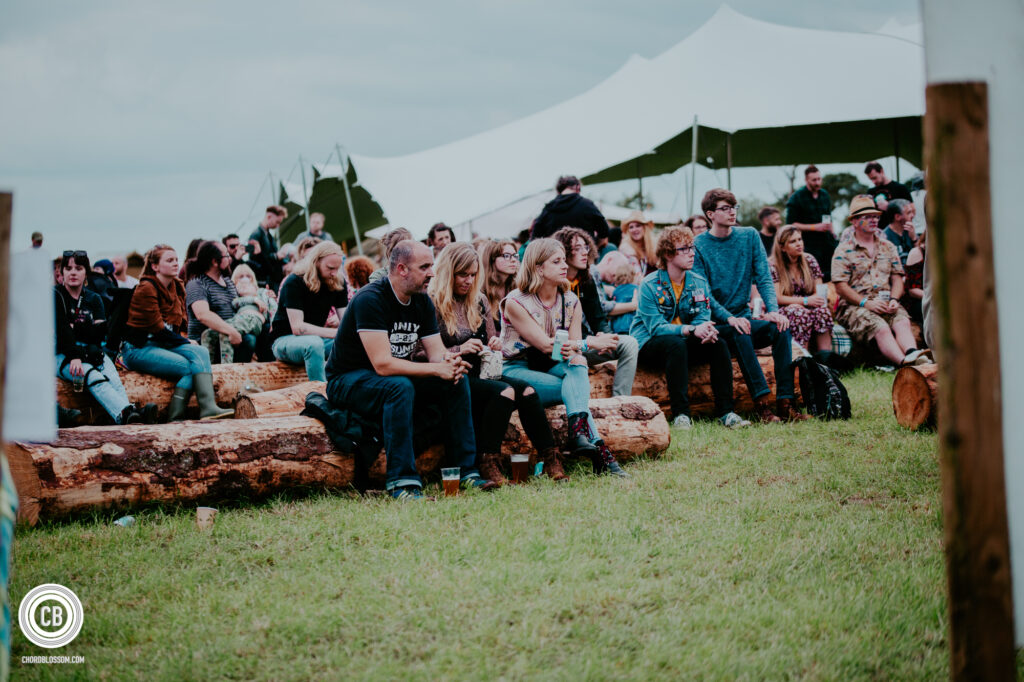
On the second day I awoke to the radio-worthy banter of our tent neighbours. Every soul we met was the kindest friendliest gem this island could offer. Every one of us; punter, family, steward, were having the time of our lives. The organisers pulled out every stop to welcome and amaze. Lights like stars by night adorned magnificent wooded scenery by day with nooks and crannies you could happily spend days in. It was in the midst of this sound checking splendour that we wandered to the first gig of the day in Karma Valley.
I remember seeing Cherym perform in the past, impressively, but they’ve certainly not spent lockdown in languor. These guys were so unbelievably tight. Sacrificing none of their adoring/angry attitude. They have a knack for channeling angst and irrational fear into infectious positivity and feckless joie-de-vivre. The fluorescent green hair and pink jumpsuit of lead singer Hannah was the best fit of the fest, and with confidence she the band wrestled a hungover crowd into the wild throes of irreverent sing-along chorus of Chordblossom’s Song of the Year 2019 “Abigail” (it’s been stuck in my head for two years too). What I loved most about their set was how much fun they were having on stage, it was more contagious than covid. Cherym managed a year off stage, but damn do they belong on it, with fist pumps and full volume.

Now, the week before Stendhal I was listening to nothing but Dani Larkin’s debut record “Notes for a Maiden Warrior”, so ‘anticipation’ doesn’t come near the hype I had here. Dani does so much with so little, wringing heart-wrenching and heart mending emotion from the sparsest banjo chords and keened notes. Joined only by NOP’s drum-king George Sloan and virtuosic violinist Kate Squires, Dani created an eternal low rumble of life emanating from the spirits of the natural world. Captivated by the primal cut “Aoife”, I swear I heard the birds shush up, “Clap your hands, one, two, three/There’s treasure to be found in the rolling sea”. You can’t choose a highlight when the whole set is perfection, but the sharpest blade of the bunch could have been the acapella ender “Three Wise Women”. There’s an obvious awareness of the history of folk music, but an immediacy that makes it so modern. Dani Larkin could be from any point in history, we’re just lucky to have her in ours.
I genuinely believe in witches now, I saw one. Blackbird & Crow were the voodoo magic act that convinced me. “This is my Jim Morrison moment” she repeated, intoxicated as much with the vibe as the drink, and true to Doors form she was eminently cool, the microphone was a limb she commanded with grit and gusto so great we’ll need a new word to accurately describe it. The tunes ranged from folky banshee ballads (“Margaret the Martyr”) to deranged howling sorcerer-blues (“The Witch that Could Not Be Burned”). In her proud Derry drawl she bitingly scowls with a menacing smile, “I am the cursed, I am the damned! Fire in my blood, and pitchforks in your hands!” We dropped our pitchforks in fear and awe, our hands were better suited for clapping.
The Slieve Martin Stage continued to host alt-folk royalty with No Oil Paintings. Given their Americana edges, I was struck by how bluesy the boys were, but by god they could make a tree branch rock. Cuts like “God Only Knows” and “Icarus” interrogated the skies, re-contextualising seemingly impervious rock idioms as questions for our idle unsure generation, “Is it better to burn out than fade away?”. Let’s consider their name. Oil paintings take longer to dry, it’s a time and money consuming form. Thus, No Oil Paintings are harbingers of the beauty of the moment. Having played for years, they’ve found the exact spot for all four members’ instruments to effortlessly co-inhabit a visceral sonic space that gently enveloped the audience in the terrible luxury of the forever-as-now.
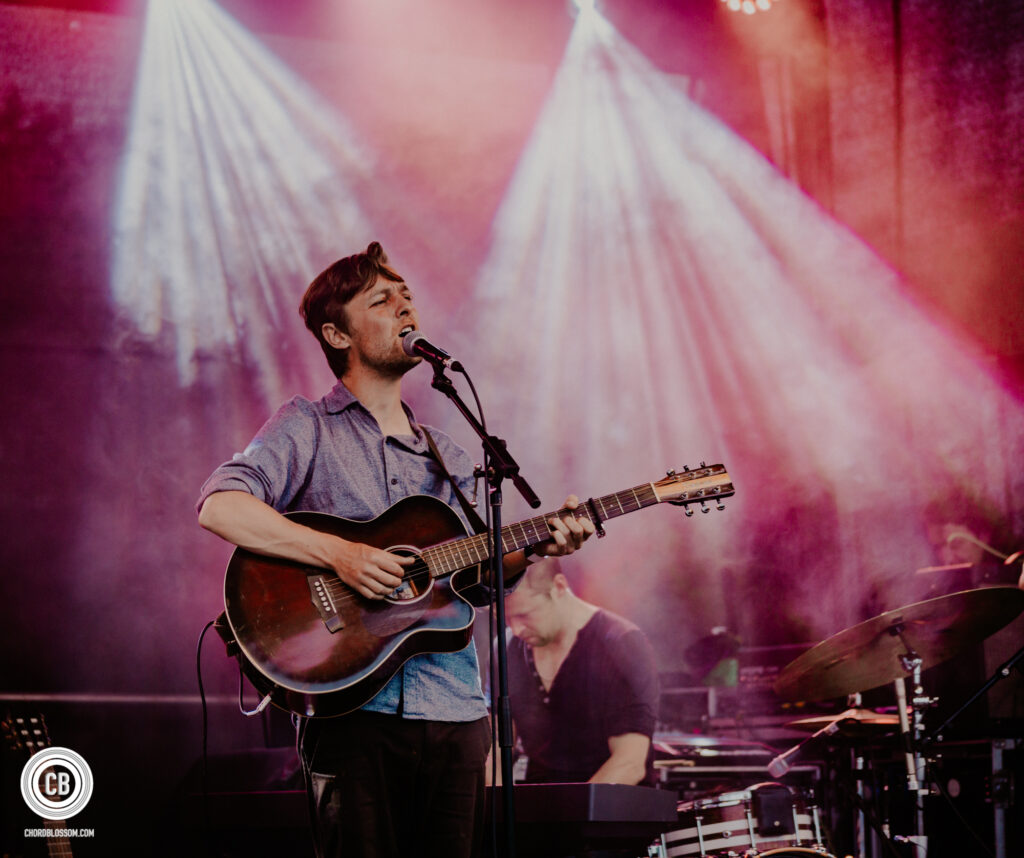
“Whiskey, whiskey, no ice in my whiskey please”, for it would water down the world Joshua Burnside transported us to. Into the depths of hell and back again, singed by a burning freeze, it now seems like a dream. I was a bit far back, but still the band onstage was a vacuum for attentiveness. I don’t think I blinked for an hour, Burnside’s magnetism and whisk-away songwriting will do that to you. My heart laughed and jumped with the unsteady time and steely claps of “Under the Concrete”, and “Noa Mercier” was somehow more stirring than the studio recording. Perhaps it was the cathartic nature of the setting; despite the dour, downtrodden tone of the songs, Burnside and his band bolstered and boomed an utter sense of joy that lingered in the crowd for the rest of the festival.
True to their name, New Pagans ritualistically took to the stage and burnt a hole in the sky. If ever there was a band to play the end of the world, it’s them. Lyndsey McDougall’s barks and snarls can flit in an instant to demonically beautiful singing. Their blend of goth and indie rock is tempered to break you as easily as it remakes you. It’s like what a vampire would listen to when they fly, as it sounds best by night.
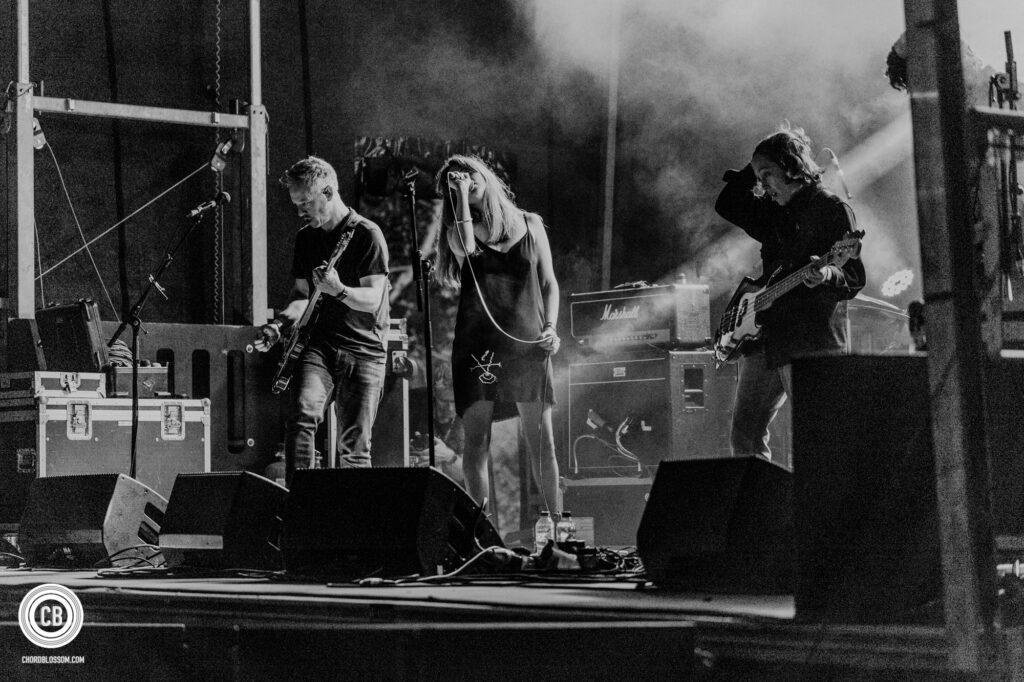
After New Pagans ruptured the ears of my soul and I replaced the socks they’d blown off with glee, I went to catch ASIWYFA, probably the best example of the unique, impossible to categorise and harder to do justice sounds that this island has unleashed unto the world. Each element of the band is so singular and complex but together form an awe-inspiring Mecha Power Ranger of math-rock. Rory Friers and Niall Kennedy set their guitars to kill and stormed with the war-cry intensity. I admit “It’ll melt your face” is a corny dad-rock phrase, but they opened the ark of the covenant on stage. Chris Wee’s chameleon drumming warped from jazzy to hardcore to thrash and back again without missing a beat. Their tunes can choke you, comfort you, make you ascend.
This marked the tenth anniversary of Stendhal, and what a celebration. But we’re not done yet, August is around the corner, and your ticket is waiting to be bought.


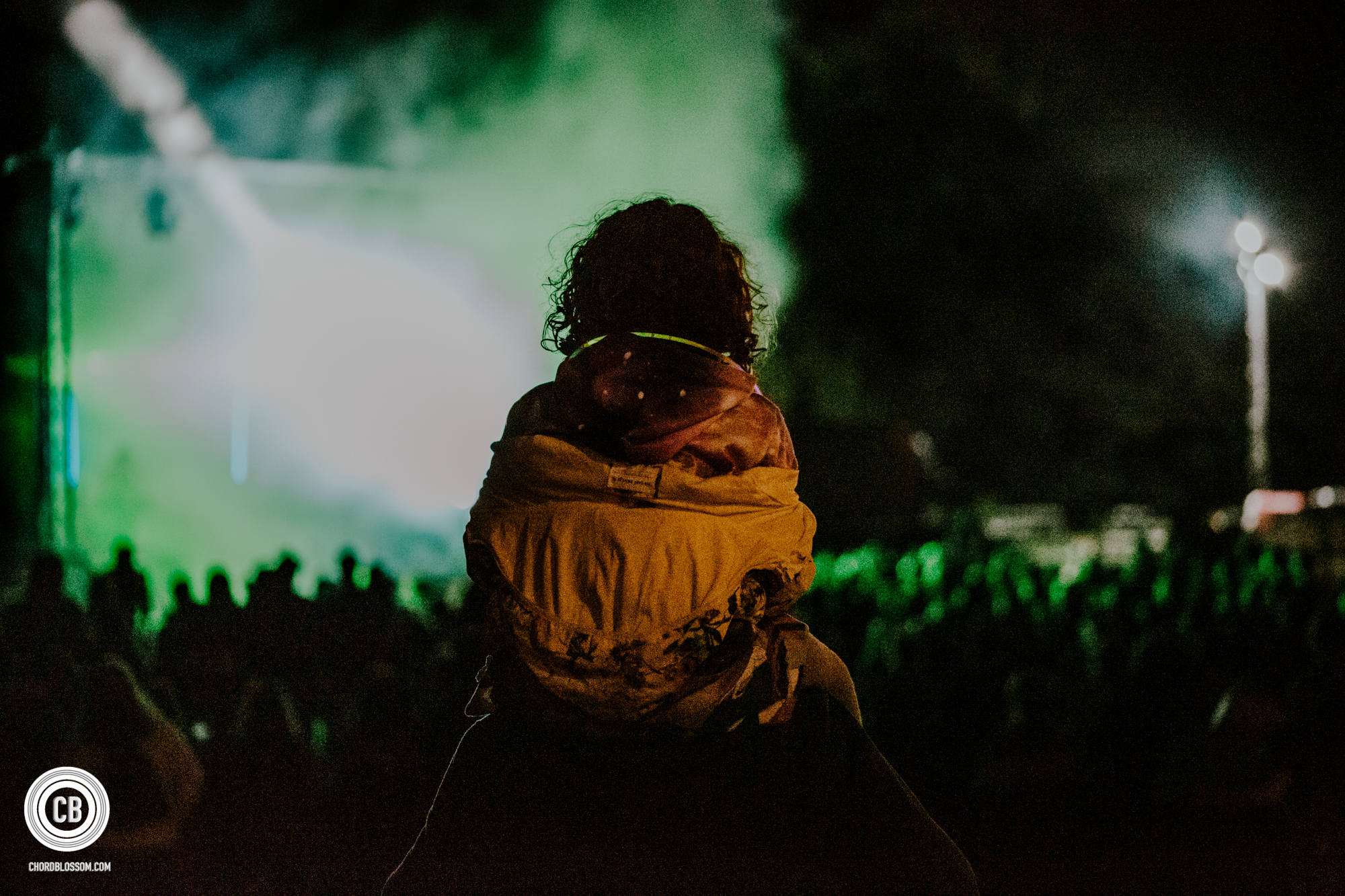
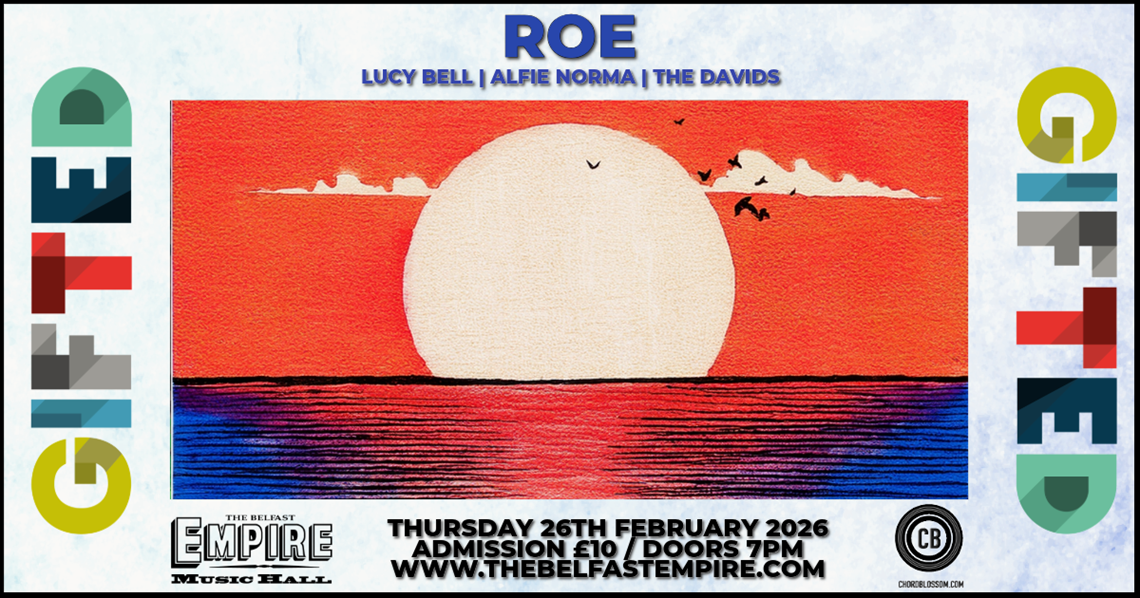
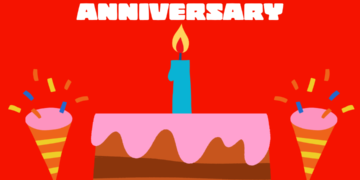
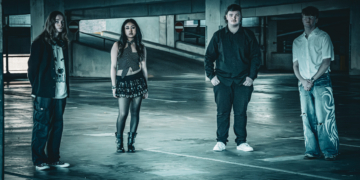



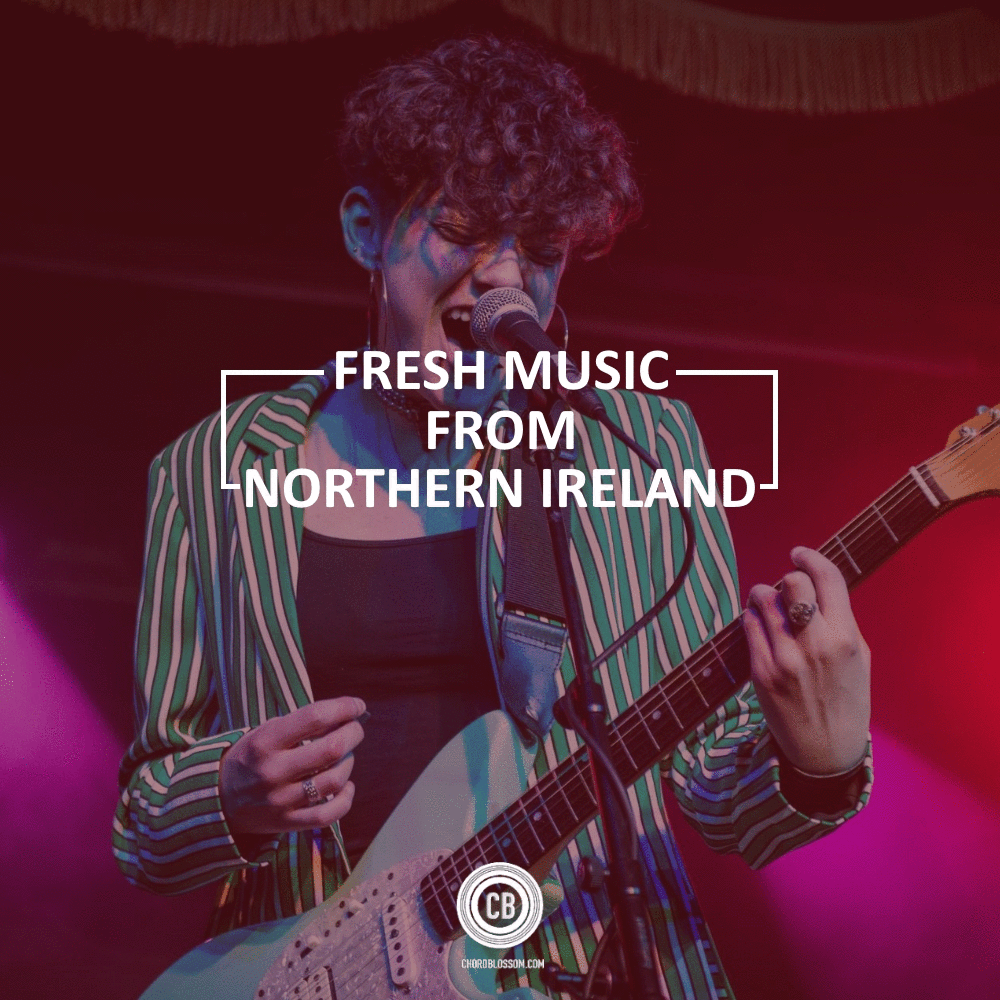
Comments 1